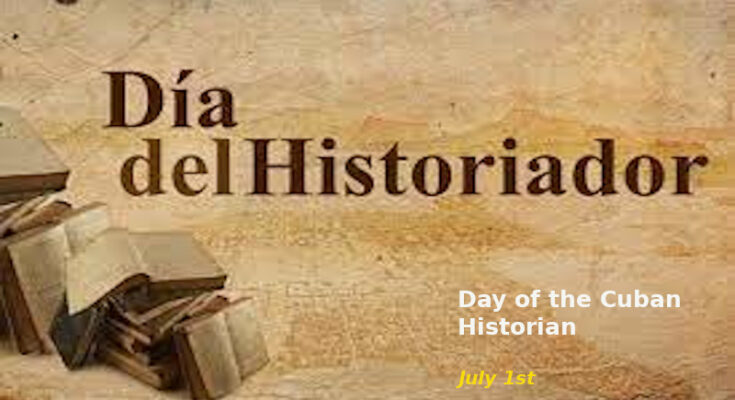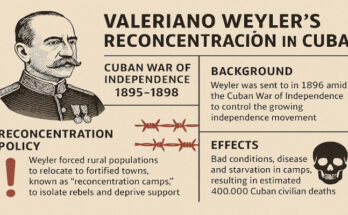Cuba has a history that dates back more than 500 years, and a prehistory that dates back some 10,000 years before the present.
Of the latter, the little we know is due to archeological findings, but of the shorter chronologically we do know more due to the testimonies left by historians.
No Cuban forgets the famous phrase of Christopher Columbus when he discovered the beauties of the island, describing it as the most beautiful that human eyes have ever seen. And there are many compatriots who have studied the extermination of the aboriginal population through the so-called “chroniclers of the Indies”, the most famous of whom was Fray Bartolomé de las Casas.
That is the magic of history and of its creators: the historians. Those people of acute perception and deep intellectual knowledge, who leave captured for the present and, above all, for the future, the course of a nation, a country and its people.
Three were our first historians: José Martín Félix de Arrate, Ignacio Urrutia y Montoya, and Pedro Morell de Santa Cruz. Nicolás Joseph de Ribera, with his famous Description of the Island of Cuba, a work published in 1760, is also included in this rank of initiator.
The lovers of Clio, the muse of History, according to Greek mythology, have been in charge of leaving for posterity the transcendent events of an era, its heroes, legends and traditions.
José Martí, the historian
These are the Homeros of modern times, whose illustrious names we Cubans can be proud of. There we have José Martí, who without intending it, in the strictest sense of the term, nobody doubts his condition of exceptional historian, for which it is enough to read his Presidio Político en Cuba or his patriotic defense of the seven students of Medicine, murdered by the irrational hatred of a monarchic and retrograde Spain. And in the same rank can be placed his beautiful portraits dedicated to Carlos Manuel de Céspedes and Ignacio Agramonte, to Máximo Gómez or to General Antonio Maceo.
We can also include Fidel in this pleiad of history writers. His speeches are experiential reflections of an era, of a context, without which the most recent history of the country cannot be understood and told. Just by mentioning his anthological speech of October 10, 1969, on the centenary of the beginning of our libertarian deeds, we can corroborate this thesis.
Many other men and women have been historians by profession and trade. Emilio Roig de Leuchsenring, who was appointed Historian of Havana on July 1, 1935, and in whose honor the Day of the Cuban Historian is celebrated, cannot be left out of the list. Nor to ignore the historiographic contribution of Hortensia Pichardo and her husband Fernando Portuondo.
Least of all to stop talking about a great historiographer of the island: José Luciano Franco. A man born in a humble cradle on December 13, 1891, whose contribution to the study of the thought of the Bronze Titan, with his work in three volumes: Antonio Maceo notes for a history of his life is immense. Also colossal is his contribution to the knowledge of the African slave trade and the slave uprisings: two lines of research that the seasoned historian developed in depth.
Ramiro Guerra, Julio Le Riverend -founding president of the Union of Cuban Historians-, Jorge Ibarra Cuesta and Manuel Moreno Fraginals are also among the men who have left indelible traces in Cuban historiography. All of them, of immense culture, erudition and love committed to their homeland, without ever leaving aside objectivity and professionalism when judging controversial issues of our rich and beautiful history.
Eduardo Torres Cuevas, who presides over the Academy of Cuban History and the Fernando Ortiz Chair of Higher Studies, to whom we owe the systematization of our history in several volumes: The Colony (until 1867), The Struggles (1868-1898) and The Neocolony, in addition to dozens of other works related to the history of Cuban thought.
Likewise, the contribution of Professor Torres Cuevas in disseminating our patriotic history through the televised courses of the University for All has been of inestimable value.
Fidel Castro was precise when he stated that the history of Cuba was an inexhaustible source for the formation of values; hence the importance of its study and deepening. That is why, in a month so full of important moments in the country’s history, it is worth remembering those who strive to enrich it and provide it with the scientific tools necessary to understand it and, above all, to love it. That is the key.
Eduardo Torres Cuevas, who presides over the Academy of Cuban History and the Fernando Ortiz Chair of Higher Studies, to whom we owe the systematization of our history in several volumes: The Colony (until 1867), The Struggles (1868-1898) and The Neocolony, in addition to dozens of other works related to the history of Cuban thought. A formative purpose in which history and historians are irreplaceable pieces.




